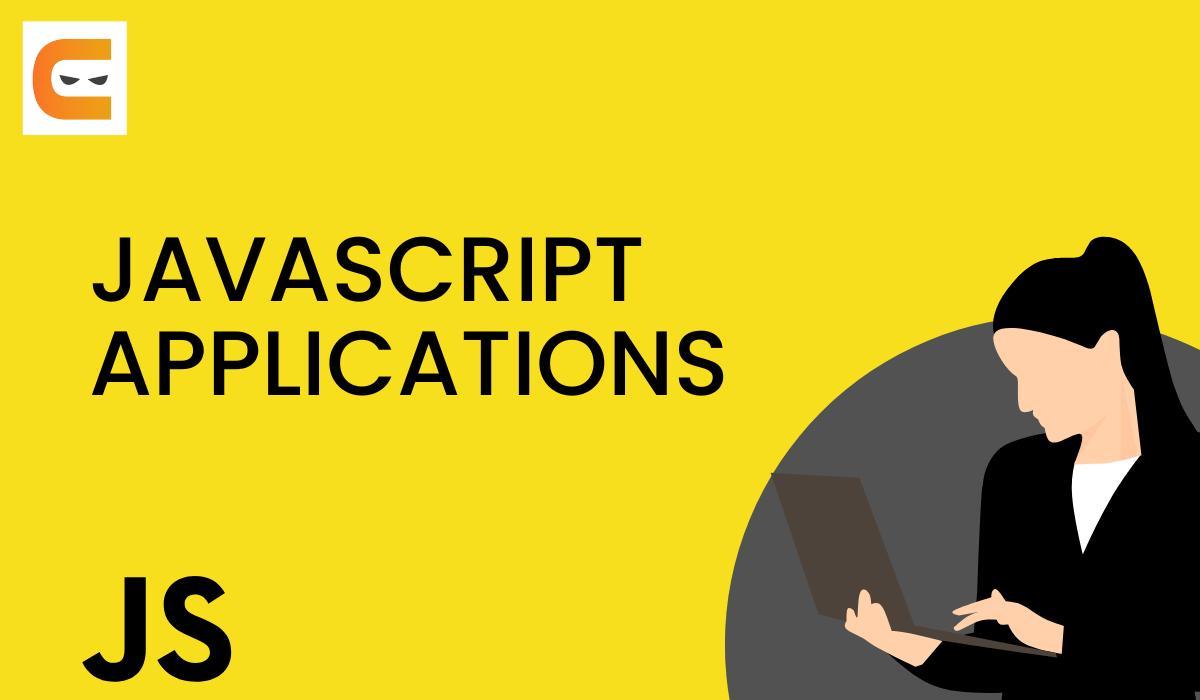Frameworks and Libraries
Frameworks like Angular, React, and Vue.js allow developers to structure their code more efficiently and build robust applications.
Example using React:
JavaScript
import React from 'react';
function App() {
return (
<div>
Hello, World!
</div>
);
}
export default App;

You can also try this code with Online Javascript Compiler
JavaScript on the Server
Node.js
Node.js is a JavaScript runtime that executes JavaScript code outside of a web browser. With Node.js, developers can write server-side applications in JavaScript.
Example:
Node.js
const http = require('http');
http.createServer((req, res) => {
res.writeHead(200, {'Content-Type': 'text/plain'});
res.end('Hello World\n');
}).listen(3000);
console.log('Server running at http://localhost:3000/');
Express.js
Express is a minimal and flexible Node.js web application framework that provides robust features for web and mobile applications. It simplifies the creation of RESTful APIs and web servers.
Example:
Express.js
const express = require('express');
const app = express();
const port = 3000;
app.get('/', (req, res) => res.send('Hello World!'));
app.listen(port, () => console.log(`App listening at http://localhost:${port}`));
JavaScript for Mobile Development
React Native
React Native is a framework that allows developers to write mobile applications for iOS and Android using JavaScript and React.
Example:
React
import React from 'react';
import { Text, View } from 'react-native';
const App = () => {
return (
<View>
<Text>Hello, World!</Text>
</View>
);
};
export default App;
JavaScript for Desktop Applications
Electron
Electron allows developers to build cross-platform desktop applications with JavaScript, HTML, and CSS.
Example:
JavaScript
const { app, BrowserWindow } = require('electron');
function createWindow() {
let win = new BrowserWindow({
width: 800,
height: 600,
webPreferences: {
nodeIntegration: true
}
});
win.loadFile('index.html');
}
app.whenReady().then(createWindow);

You can also try this code with Online Javascript Compiler
Frequently Asked Questions
Can I use JavaScript to build applications for all platforms?
Yes, JavaScript can be used to develop web, server, mobile, and desktop applications.
What are some popular frameworks for JavaScript development?
Some popular JavaScript frameworks include React for web development, Express.js for server-side applications, React Native for mobile, and Electron for desktop applications.
Is JavaScript only for front-end development?
No, JavaScript can be used for both front-end (browser) and back-end (server-side) development, as well as for mobile and desktop applications.
Conclusion
JavaScript has evolved from a language used to add simple interactions on web pages to a versatile tool capable of powering complex applications across various platforms. By leveraging various libraries and frameworks, developers can efficiently build and deploy applications that run on browsers, servers, mobile devices, and even desktops.
Understanding the key concepts and tools in JavaScript application development opens up a world of possibilities for creating engaging, responsive, and robust applications. Whether you're looking to develop a dynamic website, a powerful server, or a cross-platform mobile or desktop application, JavaScript offers flexibility and community support to make your development journey effective and enjoyable.





